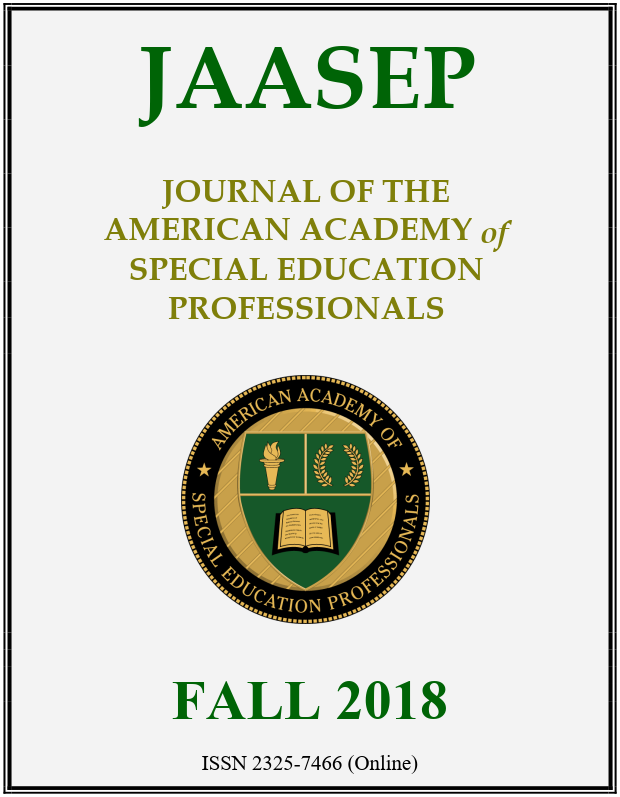The Effect of a Skills-Based Behavioral Program on Raising the Self-Concept of Individuals with Mild Intellectual Disability in UAE
Al Humaidhi, A. (2004). The effectiveness of a behavioral program to develop some social skills among a sample of children with mild intellectual disability, unpublished Master Thesis, Naif Arab University for Security Sciences Al zak, Y. (2009). Perceived self-efficacy in Jordanian university students in terms of sex, college, and academic level variables. Journal of Educational and Psychological Sciences. Bahrain University. 10 (2). 37-58. DOI: https://doi.org/10.12785/JEPS/100202
Diagnostic and Statistical Manual of Mental Disorders Fifth Edition, DSM-5TM (2013). American Psychiatric Association, Washington, DC.
Dubies, S.; Alsmaduna, A. (1998). The effectiveness of training on self-control in treating attention deficit disorder accompanied with excessive hyperactivity in children with intellectual disability, Journal of Psychology, No. 46, pp. 88-118.
Elbaum, B. & Vaughn, S. (2003). For Which Students with Learning Disabilities Are Self-Concept Interventions Effective? Journal of Learning Disabilities, V (36). N 2, March/April. DOI: https://doi.org/10.1177/002221940303600203
EL-Dawa, B. & Hammoud, H. (2014). The Effect of Building Up Self-Esteem Training on Students’ Social and Academic Skills. Procedia-Social and Behavioral Sciences 190 (2015) 146 – 155 DOI: https://doi.org/10.1016/j.sbspro.2015.04.929
Galal, A.; Aljunied, S. (2013). Bahrain's self-concept to test Illustrated self-concept for kindergarten children in the Kingdom of Bahrain ""psychometric characteristics and criteria of rationing."" Journal of Educational and Psychological Sciences, Vol. 14 Issue (1) March. DOI: https://doi.org/10.12785/JEPS/140101
Ganadi, M. (2013). Measure of illustrated self-concept of ordinary children and those with special needs, the Anglo-Egyptian library Grossi, K. & Habich, J. (2000). Leaping into social skill success. Master degree dissertation, Sain Xavior University, USA.
Hussein, N.; Abdul G, Ghada (2006). Self-concept and aggressive behavior among people with attention deficit disorder, accompanied by hyper activity. Arabic Studies in Psychology. 5 (1). 45-78.
Ittyerah, M. & Kumar, N. (2007). The Actual and Ideal Self-concept in Disabled Children, Adolescents and Adults, Psychology and Developing Societies 19, 1 (2007): 81–112. DOI: https://doi.org/10.1177/097133360701900104
Jalili, F., Beiki, Y., Fathizadan, A., Hossini, F.(2011). The Effect of a Twelve-Week Aerobic Exercise Program on Self-Concept among 8 to 10Years Old Physically and Mentally Disabilities Children. Australian. Journal of Basic and Applied Sciences, 5(10): 1187-1190.
Makin, L. (2000). Literacy and starting school: Views of parents and early childhood staff and issues for transition. A report to the early literacy and social justice project. New South Wales, Australia, 386. Ministry of Social Affairs (2014). Illustrated self-concept scale for people with intellectual disability, care and rehabilitation of the disabled Management, Dubai: United Arab Emirates.
Qasim, N.; Fatima, A. (2003). The effectiveness of some recreational program on some life, psychological and motor skills of children with intellectual disability _ ""mild"". Faculty of Education, University of Alexandria Suleiman, A. (2002). The effectiveness of training program to increase the adaptive behavior in children with mild intellectual disability, Journal of Psychology, No. (62), the Egyptian General Book Authority, June, pp. 165-167
Trull, T., Conforti, K. & Doan, B. (1997). Borderline personality disorder features in nonclinical young adults, 2 years outcomes. Journal of abnormal behavior, 106(2), 307-314. DOI: https://doi.org/10.1037//0021-843X.106.2.307
Yamani, Suad (2006). Hyperactivity disorder and Attention Deficit one of the most common neurological diseases among primary students. Al-riyadh newspaper. No. 0.13855, in May.
